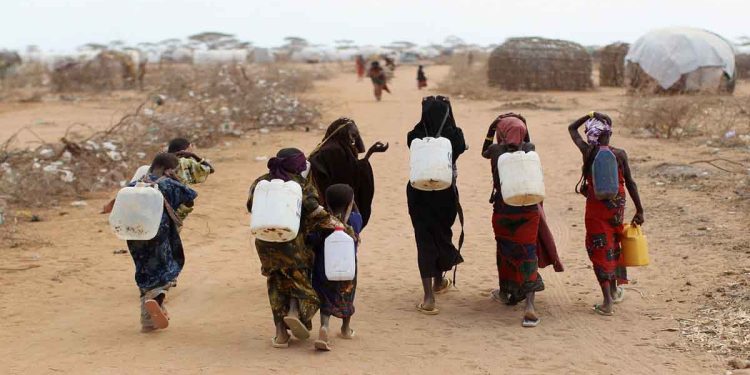Adam Abdelmoula, UN Resident and Humanitarian Coordinator for Somalia called on development partners to act urgently and help scale up resources to match the rapidly increasing needs and save more lives in Somalia.
“The situation is extremely dire and grim. 7.1 million people are going to be affected by this drought situation before the end of this year,” Abdelmoula said, adding that about 1.4 million children are facing severe malnutrition.
As of May, according to a recent report by the UN Office for the Coordination of Humanitarian Affairs (OCHA), some 6.1 million Somalis have been affected by the drought emergency.
OCHA has stated that from April to mid-May, light to moderate rain was recorded in parts of southern, central and north-western Somalia, and there were localized storms and flash flooding in some areas.
It said the outlook has worsened due to the prospects of a fifth consecutive failed rainy season, which is becoming increasingly dangerous with a local famine in six regions, especially if food prices continued to rise, and humanitarian assistance did not reach the most vulnerable.
Abdelmoula, who is also the deputy special representative of the United Nations in Somalia and a resident of the United Nations, pointed out that the UN and its partners cannot do much without more resources.
The United Nations says that the financing of the humanitarian response plan for this year, which is about $1.5 billion aimed to help 5.5 million Somalis, is still low at 15.7 percent until May 20.






























